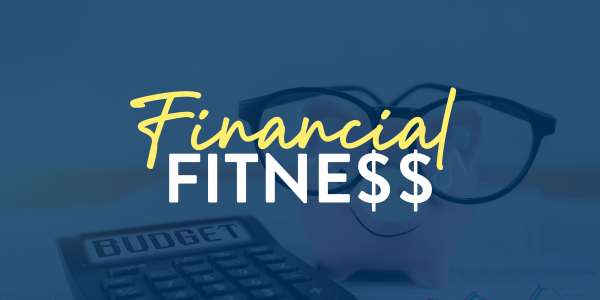
If you're wondering how to make your money work harder for you, or want help with setting up investments and savings accounts, it could be time to find a financial advisor to help you. Here are some strategies to keep in mind.

Make notes of your money concerns. Do you need help with an initial financial plan, investment portfolio, or both? When you write some introductory notes before contacting potential advisors, it'll make that first conversation more productive.
Check out different types of advisors. You can choose from fee-only or fee-based advisors. Fee-only advisors charge hourly or annual fees, as they don't earn commissions when they sell you an investment product. Fee-based advisors earn commissions, so if this looks like a conflict of interest, you may want to stick to fee-only or even robo-advisors.
You'll want to ask whether a potential advisor is a fiduciary, which requires them to put your interests before their own. Certified Financial Planners (CFPs) are fiduciaries.
Be ready to evaluate your budget. Financial advisors charge fees in different ways and the costs can vary significantly depending on the type of services offered. Be ready to calculate sample rates and confirm them before choosing an advisor.
If you decide you're not ready to commit: Consider scheduling one or two sessions with an advisor that charges by the hour. This rewards you with a professional financial plan without ongoing costs.
Source: bankrate.com
MORTGAGE IQ
Could A HELOC Be Helpful?
Even if you haven't owned a home for long, you may have a reasonable amount of equity—the amount you've repaid on your mortgage and any appreciation in your home's value—available through a home equity line of credit, or HELOC. We have a full article on how a HELOC works if you'd like some extra nighttime reading, but here are some of the highlights:
A HELOC lets you borrow a percentage of your home's equity. It has a draw period (typically 10 years), followed by a repayment period (often 20 years).
While HELOCs offer lower interest rates than unsecured credit, your home is collateral. This is why it's best to reserve a HELOC for financing these types of projects.
Home improvements and repairs. HELOCs can be especially useful if you're carrying out improvements in stages. You can draw just what you need, when you need it. You may also earn some tax benefits and deductions if you meet current IRS requirements.
Preparing to sell a home. If your home needs a new roof, HVAC system or similar before it goes on the market, a HELOC can help cover the costs. You may also be able to repay your HELOC withdrawals in full with some of your post-sale profits.
Pay off high-interest debt. You can save money on interest charges and consolidate bills by using a low-interest HELOC to pay off high-interest credit card debt you may have incurred during times of high inflation or unemployment. You may even boost your credit score in the process.
Keep emergency funds available. Keeping your HELOC funds in reserve prepares you for any unexpected financial crisis or major expense.
Connect with your local APM Loan Advisor to learn more about HELOCs.
Source: experian.com
FINANCIAL NEWS
Home Renovations with the Best Return on Investment
One of the great things about owning a home is that you can truly make it yours. Don't like the carpet? Rip it out. Hate the tan walls? Paint them any color. Don't like the wall between the living room and the kitchen? Tear it down…as long as it's not a load-bearing wall!
Home remodeling and renovations are a top trend in today's real estate market. More homeowners today are opting to make do with their space and update it rather than buying new homes. While it's true that some home renovations are made out of pure desire, it's more strategic to research home renovations with the best ROI before you get started.
Questions to Ask Yourself
It's great to tailor your space through home renovations, but you have to keep in mind that these "improvements" can impact the value of your home. This impact can be positive or negative.
Not everyone wants, say, a sun room at the sacrifice of their backyard space. Or a bathroom where there's no separation between the toilet and shower (yes, we've seen it!).
There are, of course, tons of home renovations that can produce higher ROIs for...
Read More
DID YOU KNOW?
Office Life in The World's Happiest Country
Since Finland has been identified as the world's happiest country for several years, you may be wondering how they conduct business at the office. One difference is that many offices have a flatter hierarchy, so important meetings often involve people from all levels of the organization. This strategy ensures that all staff feel that their opinions are heard, knowledge shared, and that they're contributing to the continued success of the company.
This honest approach is seen within these popular work sayings:
1. The person who asks questions will not stray away from the path.
This phrase illustrates the belief that, when people from all levels feel free to share their opinions, it helps find solutions to challenges and helps the entire organization.
2. A crazy person does a lot of work; a smart person gets away with less.
In other words: Work smarter, not harder. This reminds management to state their expectations clearly, so staff can focus on the priorities that matter the most.
3. Put the cat on the table.
Similar to our expression that describes the elephant in the room (a touchy subject we want to avoid), it describes talking about a business issue that's important, but may be challenging to some. It describes an office where people will have trusting, open discussions about solving problems.
4. Whatever you leave behind, you will find in front of you.
On the flip side of the cat on the table, this phrase suggests that leaving an issue unattended may result in a problem eventually. The best way to handle a problem responsibly is to address it soon.
5. Going toward the tree with your back first.
This phrase visualizes what happens when you don't plan ahead or think about the consequences of certain business decisions. If this happens, bumping into a tree that's behind you will hurt, while planning ahead will help achieve more.
Source: cnbc.com
PERSONAL FINANCES
Solo Retirement Planning
If you're going to be retiring on your own, you may be frustrated by the excess of family-oriented plans that won't work for you. Here are some guidelines to help you manage financially while arranging safe, secure future living arrangements.
Your Income
Many solo retirees prefer budgets with three tiers: day-to-day expenses, healthcare costs and insurance, and savings for long-term care needs. Financial planners also suggest that solo agers keep more funds in their emergency savings account if possible, and to consider disability insurance if they're still working. This helps protect retirement savings in case of a claim.
Your Insurance
Adding long-term care insurance (LTCI) to your coverage may be useful if it's within your budget. These cover expenses that aren't typically covered by Medicare, such as home health, adult day care, and skilled nursing. Adding LTCI coverage as early as possible may help keep your premiums affordable.
Your Home
If you're considering assisted living, there are plenty of options. However, active retirees usually prefer aging in place. Consider contacting these or similar organizations if you have questions.
- The Village to Village Network assist retirees with aging in place while planning for future care needs when they reach their 80s and 90s.
- Home sharing can help keep expenses down, and you may make new friends as well. The National Shared Housing Center is a good place to begin your search.
Even if your retirement plans are in the distant future, you can begin to consider your options now. Or check out this PDF report: Flying Solo: Experiences of Older Adults Who Are Aging Alone.
Source: lifecareaffordability.com
FOOD
Chicken and Bacon Pasta Salad
Warmer months are ideal for dishes that you can serve at a cooler temperature, but you have plenty of options besides salad. This Chicken and Bacon Pasta Salad is ideal for a main or side dish all summer long.
REAL ESTATE TRENDS
What's Best for Cooling Your Home: Heat Pump or AC?
As temperatures rise across most of the nation, saving on your home's cooling costs is probably a priority—especially if it's time to replace an older or inefficient AC system. If you're currently shopping for an effective way to keep your home comfortable, you may be researching the latest heat pump and air conditioning systems. You may also be confused about the differences, so here's what you need to know about each one.
Air Conditioners move heat from the interior of your home to the outdoors. The outdoor condenser contains liquid refrigerants that go to an interior evaporator coil, pulling heat out of your home to cool it. The hot refrigerant gas goes back outdoors to your condenser, where it will revert to a liquid to move hotter air outdoors.
Heat Pumps cool your home by transferring warm air from inside your house to outside. Carrier sells both air conditioning and heat pump systems and describes their cooling process as similar to an air conditioner.
However, heat pumps can also warm your home during colder months, while homes with air conditioning systems don't. They also use less energy to warm your home than other systems, as they move heat inside instead of generating it. If you're preparing for next winter, a heat pump may make your home eco-friendlier, as they'll reduce emissions by up to 93% when they replace an older gas furnace. You may also qualify for tax credits and incentives if you install a heat pump. Ask your tax advisor for details.
Sources: kiplinger.com








